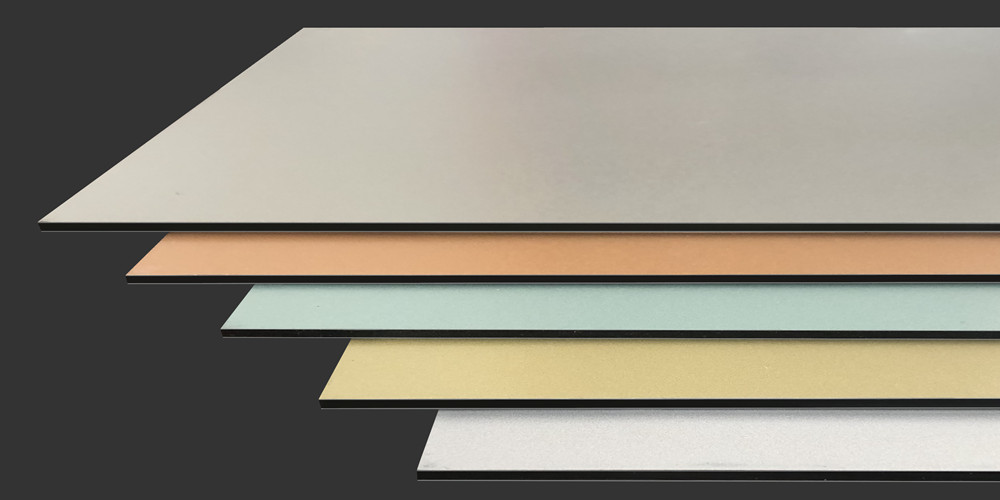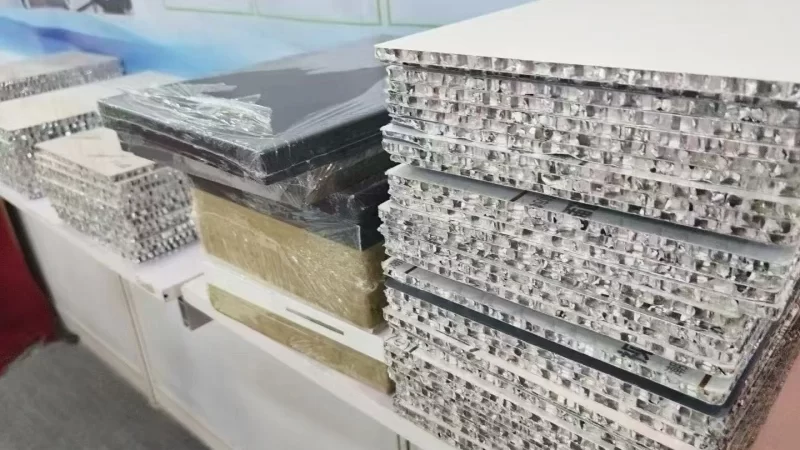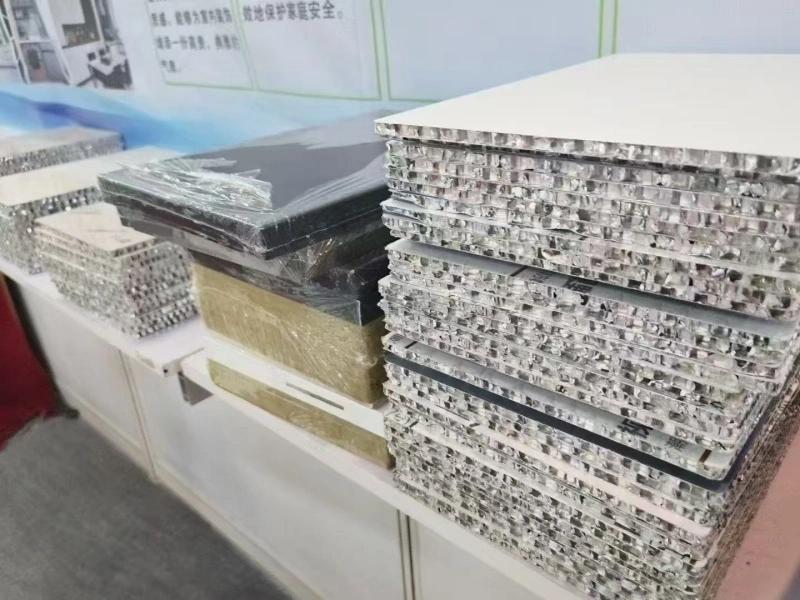When choosing lightweight yet strong building materials, aluminum honeycomb panels and aluminum composite panels (ACP) are two popular options. While both feature aluminum surfaces, their core structures and performance differ significantly.

Specification
-
Classification: Architectural and decorative aluminum panels
-
Thickness: Common core thicknesses from 5mm to 25mm
-
Surface Finish: PE/PVDF coating, anodized, brushed, or mirror finish
-
Alloy Options: Typically 3003, 5052 for honeycomb; 1100, 3003 for ACP
Thickness & Dimensions
| Feature | Honeycomb Panel | Composite Panel (ACP) |
|---|---|---|
| Standard Thickness | 10mm–50mm | 3mm–6mm |
| Panel Width | 1000mm–1500mm | 1220mm–1500mm |
| Length Options | Up to 6000mm | Up to 4000mm |
| Core Thickness | 8mm–48mm (honeycomb) | 2mm–5mm (PE/mineral) |
Introduction
When choosing building materials, many designers and builders compare aluminum honeycomb panels (AHP) and aluminum composite panels (ACP). While they look similar, these two materials have different structures, properties, and uses. Understanding their differences can help you choose the right panel for your project.
What Is an Aluminum Honeycomb Panel?
An aluminum honeycomb panel is a sandwich panel made of two thin aluminum sheets bonded to a honeycomb aluminum core. The core is shaped like a honeycomb structure, which provides high strength and low weight.
Key Features of Honeycomb Panels:
-
Lightweight but strong
-
Excellent flatness and stiffness
-
Fire-resistant and corrosion-resistant
-
Eco-friendly and recyclable
What Is an Aluminum Composite Panel (ACP)?
An aluminum composite panel has two thin aluminum sheets bonded to a non-aluminum core, usually polyethylene (PE) or fire-resistant (FR) mineral core. ACPs are widely used for signage, cladding, and decorative panels.
Key Features of Composite Panels:
-
Cost-effective
-
Smooth surface and easy to process
-
Variety of finishes and colors
-
Good impact resistance
Structural Comparison
| Feature | Honeycomb Panel | Aluminum Composite Panel (ACP) |
|---|---|---|
| Core Material | Aluminum honeycomb | PE or FR core |
| Weight | Very light | Light |
| Thickness | 6mm–25mm | 3mm–6mm |
| Strength | High | Moderate |
| Surface Flatness | Excellent | Good |
| Fire Resistance | Excellent | Moderate to Good |
| Durability | Long-lasting | Moderate |
Installation and Processing Differences
-
Honeycomb panels require more precise cutting tools and mechanical fastening systems due to their rigidity.
-
ACP panels are easier to cut, bend, or shape using standard tools.
Applications of Honeycomb Panels vs. ACP Panels
Aluminum Honeycomb Panel Applications:
-
High-end building facades and curtain walls
-
Airport interiors and partitions
-
Train and ship walls and ceilings
-
Cleanrooms and laboratories
-
Lightweight furniture or display panels
Aluminum Composite Panel Applications:
-
Commercial and residential wall cladding
-
Signage and advertisement boards
-
Ceiling and partition decoration
-
Shopfronts and display kiosks
-
Interior design and furniture panels
Cost Comparison
-
Aluminum honeycomb panels are more expensive due to their all-metal structure and production complexity.
-
ACP panels are budget-friendly, especially for large decorative areas.
Which One Should You Choose?
It depends on your project needs:
✅ Choose Honeycomb Panels if:
-
You need maximum flatness, rigidity, and durability
-
Your project involves high-performance architectural or transport applications
-
Fire safety and longevity are top priorities
✅ Choose ACP Panels if:
-
You want a cost-effective solution for interior or exterior decoration
-
You need panels that are easy to install and shape
-
You have budget constraints but still want a clean, modern look
Environmental and Safety Considerations
-
Aluminum honeycomb panels are fully recyclable, non-toxic, and ideal for green building projects.
-
ACP panels with PE core may raise fire safety concerns in some regions unless fire-retardant (FR) grade is used.
Conclusion
Both aluminum honeycomb panels and aluminum composite panels have their advantages. Your final choice should be based on:
-
Project type and scale
-
Budget
-
Desired performance
-
Aesthetic and safety requirements
WORTHWILL ALUMINUM offers both types of panels in a variety of finishes, thicknesses, and custom options. Contact us today to get expert advice and competitive factory prices!

